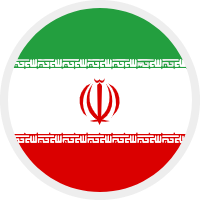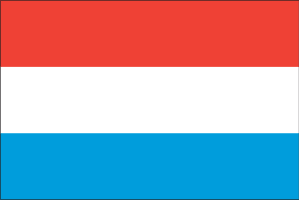 America
America
 Spanish
Spanish
 Ethiopia
Ethiopia
 Albania
Albania
 South Africa
South Africa
 UAE
UAE
 Armenia
Armenia
 assamese
assamese
 Aymara
Aymara
 Azerbaijani
Azerbaijani
 belarusian
belarusian
 Bengali
Bengali
 Bhojpuri
Bhojpuri
 Bosnian
Bosnian
 Bulgarian
Bulgarian
 bur
bur
 Catalan
Catalan
 Cebuano
Cebuano
 corsican
corsican
 Czech
Czech
 Danish
Danish
 German
German
 Divish
Divish
 Greek
Greek
 America
America
 Esperanto
Esperanto
 Estonian
Estonian
 Filipino
Filipino
 Finnish
Finnish
 French
French
 Georgian
Georgian
 irish
irish
 galician
galician
 Guaraní
Guaraní
 Gujarati
Gujarati
 hausa
hausa
 Hawaiian
Hawaiian
 Hebrew
Hebrew
 Hindi
Hindi
 Khmer
Khmer
 hmn
hmn
 Croatian
Croatian
 Haitian
Haitian
 Hungarian
Hungarian
 igbo
igbo
 Icelandic
Icelandic
 Indonesian
Indonesian
 Italian
Italian
 Kannada
Kannada
 Kinyarwanda
Kinyarwanda
 Kyrgyz
Kyrgyz
 Konkani
Konkani
 Korean
Korean
 Kurdish
Kurdish
 Lao
Lao
 Latin
Latin
 latvian
latvian
 lingala
lingala
 Lithuanian
Lithuanian
 Luxembourgish
Luxembourgish
 luganda
luganda
 Macedonian
Macedonian
 Maithili
Maithili
 malayalam
malayalam
 Maori
Maori
 Marathi
Marathi
 Malay
Malay
 Maltese
Maltese
 Nepali
Nepali
 Dutch
Dutch
 Norwegian
Norwegian
 Nyanja
Nyanja
 Oromo
Oromo
 oriya
oriya
 Punjabi
Punjabi
 farsi
farsi
 Polish
Polish
 Portuguese
Portuguese
 Pashto
Pashto
 Quechua
Quechua
 Romanian
Romanian
 Russian
Russian
 Sanskrit
Sanskrit
 Sinhalese
Sinhalese
 Slovak
Slovak
 Slovenian
Slovenian
 Samoan
Samoan
 Sindhi
Sindhi
 Somali
Somali
 Spanish
Spanish
 Serbian
Serbian
 Sundanese
Sundanese
 Swahili
Swahili
 Swedish
Swedish
 Tamil
Tamil
 Tatar
Tatar
 Telutonic
Telutonic
 Tajik
Tajik
 Thai
Thai
 Tigrinian
Tigrinian
 Shierqi
Shierqi
 Turkmen
Turkmen
 TWI
TWI
 Ukrainian
Ukrainian
 Urdu
Urdu
 Vietnamese
Vietnamese
 Welsh
Welsh
 xhosa
xhosa
 Yiddish
Yiddish
 Yoruba
Yoruba
 Zulu
Zulu
 Japanese
Japanese
The world of telecommunication has witnessed significant advancements in recent years, and one such breakthrough is the introduction of optical fiber ribbon cables. These cables have revolutionized the industry by providing higher bandwidth, improved reliability, and enhanced transmission capabilities. In this article, we will delve into the details of optical fiber ribbon cables from four aspects: construction, advantages, applications, and future prospects.
Optical fiber ribbon cables consist of multiple individual fibers that are stacked together in a flat configuration. These fibers are precisely aligned and held together by a thin layer of adhesive material. The compact design allows for efficient use of space while maintaining excellent performance characteristics.
The individual fibers within the ribbon cable are typically color-coded for easy identification during installation and maintenance procedures. This feature simplifies troubleshooting tasks and reduces downtime in case of any issues.
The construction also includes a protective outer sheath made from materials such as polyethylene or polyvinyl chloride (PVC). This sheath provides mechanical protection to the delicate fibers against external factors like moisture, temperature variations, and physical stress.
Optical fiber ribbon cables offer several advantages over traditional loose tube cables:
a) Higher Density: The flat configuration allows for higher density packing compared to loose tube designs. This makes them ideal for applications where space is limited or when large numbers of fibers need to be deployed efficiently.
b) Faster Installation: With multiple fibers grouped together in a single cable unit, installation becomes faster as each ribbon can be spliced at once instead of individually splicing each fiber separately.
c) Improved Reliability: The precise alignment provided by the ribbon structure ensures better signal integrity with reduced loss or dispersion compared to loose tube designs.
In data centers where high-speed connectivity is crucial for seamless operations,optical fiberribboncablesarewidelyused.Thehighbandwidthcapabilitiesofribboncablesallowforfastandefficientdatatransmissionbetweenserversandnetworkingequipment.Thisresultsinreducedlatencyandimprovedoverallperformanceofthedatacenterenvironment.
b) Long-Distance Communication Networks:Ribboncablesfindextensiveuseinlong-distancecommunicationnetworkswherehigh-capacityfiberopticconnectionsareessential.Theseapplicationsincludetelecommunicationsbackbones,internetbackbones,andintercontinentalunderseacablesystems.Thehigherfiberdensityprovidedbyribboncablesenablestheaccommodationoflargenumbersoffiberswithinasinglesubmarineoroverheadcable,resultinginmorecost-effectiveandspace-efficientinstallations.
c) Fiber-to-the-Home (FTTH):Ribboncablesplayavitalroleinthedeploymentoffiber-opticconnectivitytoresidentialareas.Withtheever-increasingdemandforhigh-speedinternetaccess,opticalfiberribboncablesenableFTTHproviders,todeliverfastandreliablebroadbandservicestoend-users.Thecompactdesignofribboncablereducesinstallationtimeandsimplifiesthemaintenanceprocessesinvolvedinservicingindividualhomes.
Thefuturelooksbrightforopticalfiberribboncablentechnology.Asfiber-opticnetworkscontinueexpandingtomeettheincreaseddemandfordataandcommunicationservices,theuseofribboncablereadilyfitsintothisgrowthtrajectory.Inadditiontoexistingapplications,newemergingtechnologiessuchas5GwirelessnetworksandInternetofThings(IoT)solutionswillfurtherdrivetheneedforefficient,faster,andmoredenselypackedfiberconnections.Ribbonswithhigherfibercountsandadvancedmanufacturingtechniqueswillcontinuetopushthelimitsofwhatistechnicallyfeasible,makingopticalfiberribboncab

![]() High-tech Development District, Zhengzhou City, Henan Province, China. 450000
High-tech Development District, Zhengzhou City, Henan Province, China. 450000
![]() High-tech Development District, Zhengzhou City, Henan Province, China. 450000
High-tech Development District, Zhengzhou City, Henan Province, China. 450000
Copyright © 2001-2023 Henan Rayo Cable Technology Co.,Ltd All rights reserved.


